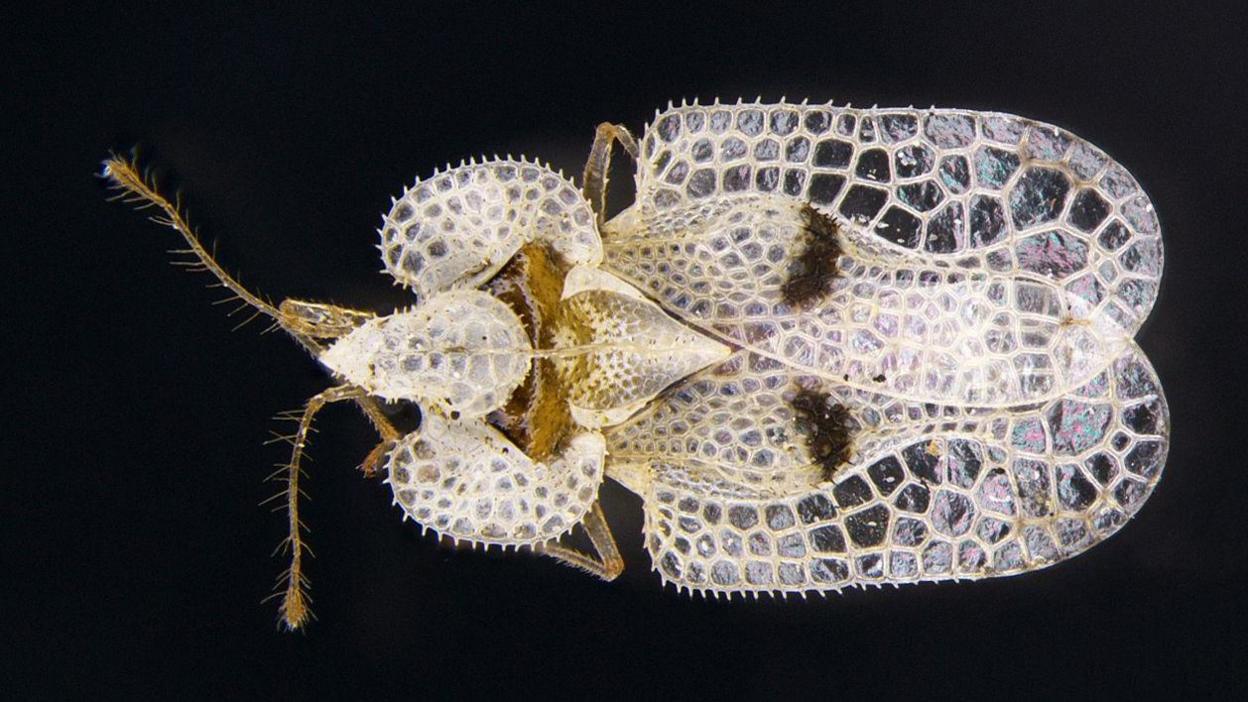Hunt in Kent for invasive bug which damages trees
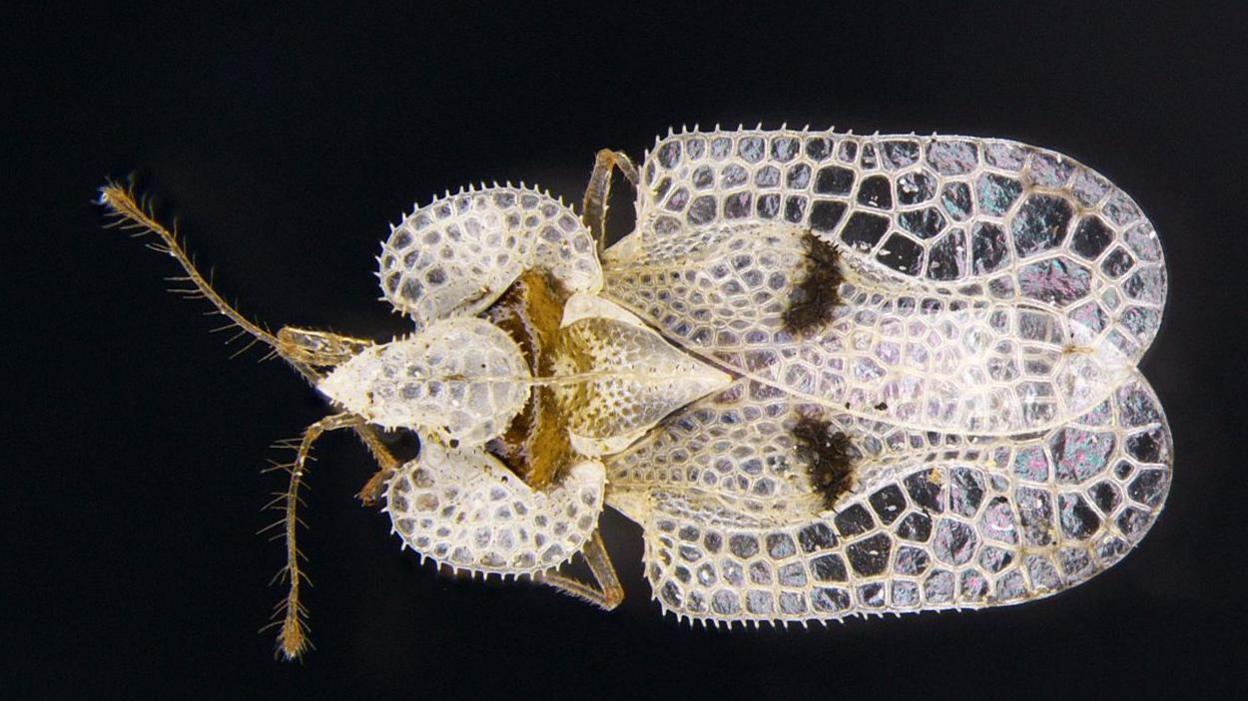
The recent sightings of the plane lace bug is the first in 18 years in the UK
- Published
Plane trees across Kent are at risk from an insect invasion that has been observed in nearby London.
The plane lace bug, which has been spotted in the UK for the first time in 18 years, lays its eggs on plane tree leaves, meaning they are at risk of deadly infection.
The Woodland Trust is calling for volunteers to get involved with a project which is seeking to monitor the bug, which is native to North America and now widespread in Europe.
External Affairs Officer Bridget Fox said: "We can all play our part and not allow these pests and diseases to spread.”
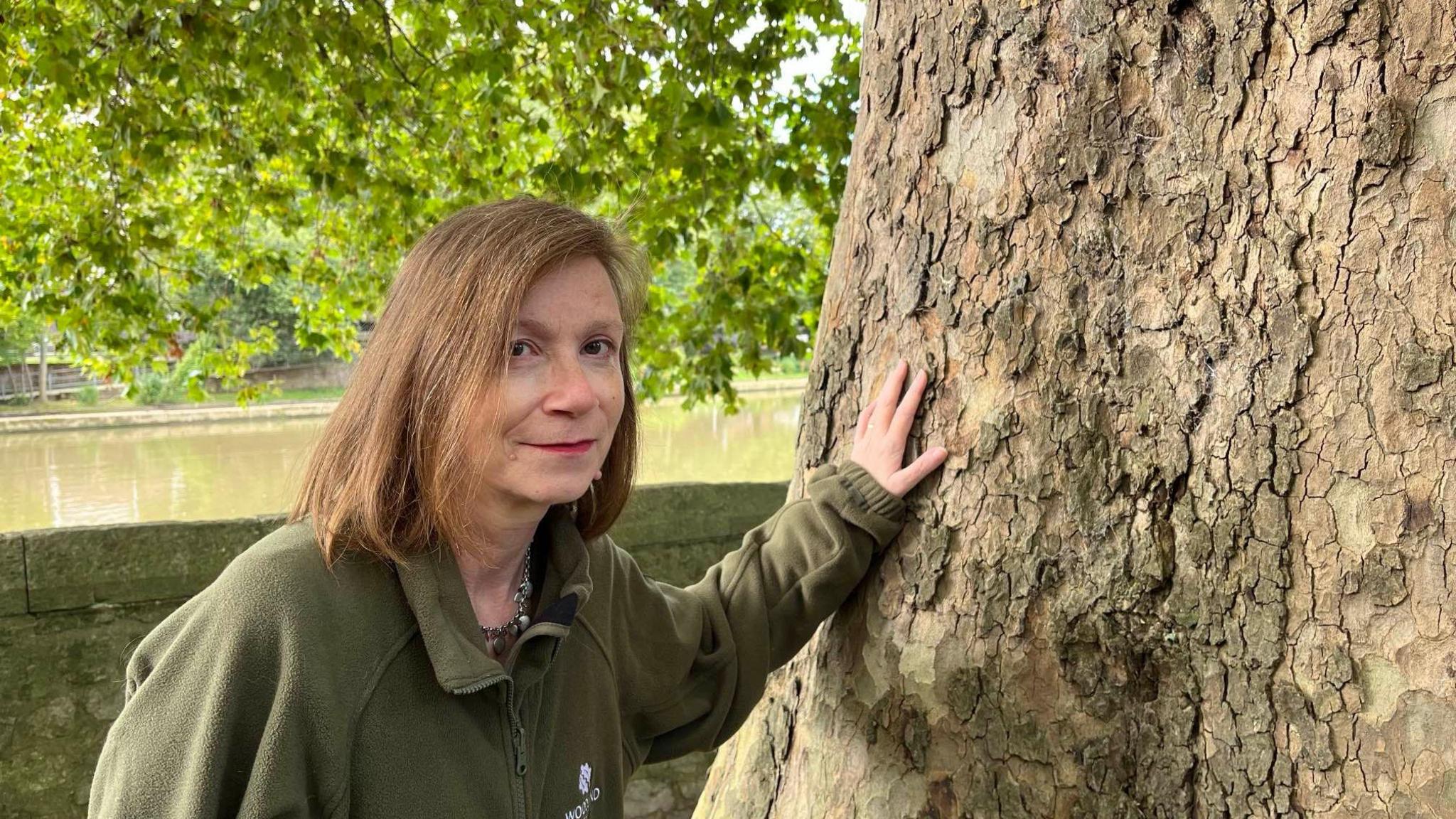
Bridget Fox from The Woodland Trust is asking for us to search for the plane lace bug this autumn
The bugs are known to hitchhike on vehicles, clothing and bags, and the density of plane trees in urban areas can help the pest spread quickly.
The plane lace bug can be identified from the ground with binoculars, by looking for discolouration and holes in the leaves.
Ms Fox adds the public can help monitor the bug by providing information through the Observatree, external project, and by avoiding imported wood or plants for gardens.
She said: "These tiny bugs lay their eggs on the sap rich veins in plane tree leaves.
"When they hatch, they eat into them making the trees vulnerable to other diseases.
"It causes them to shed their leaves early which means they have less opportunity to breathe and to feed, which generally reduces the health of the the trees."
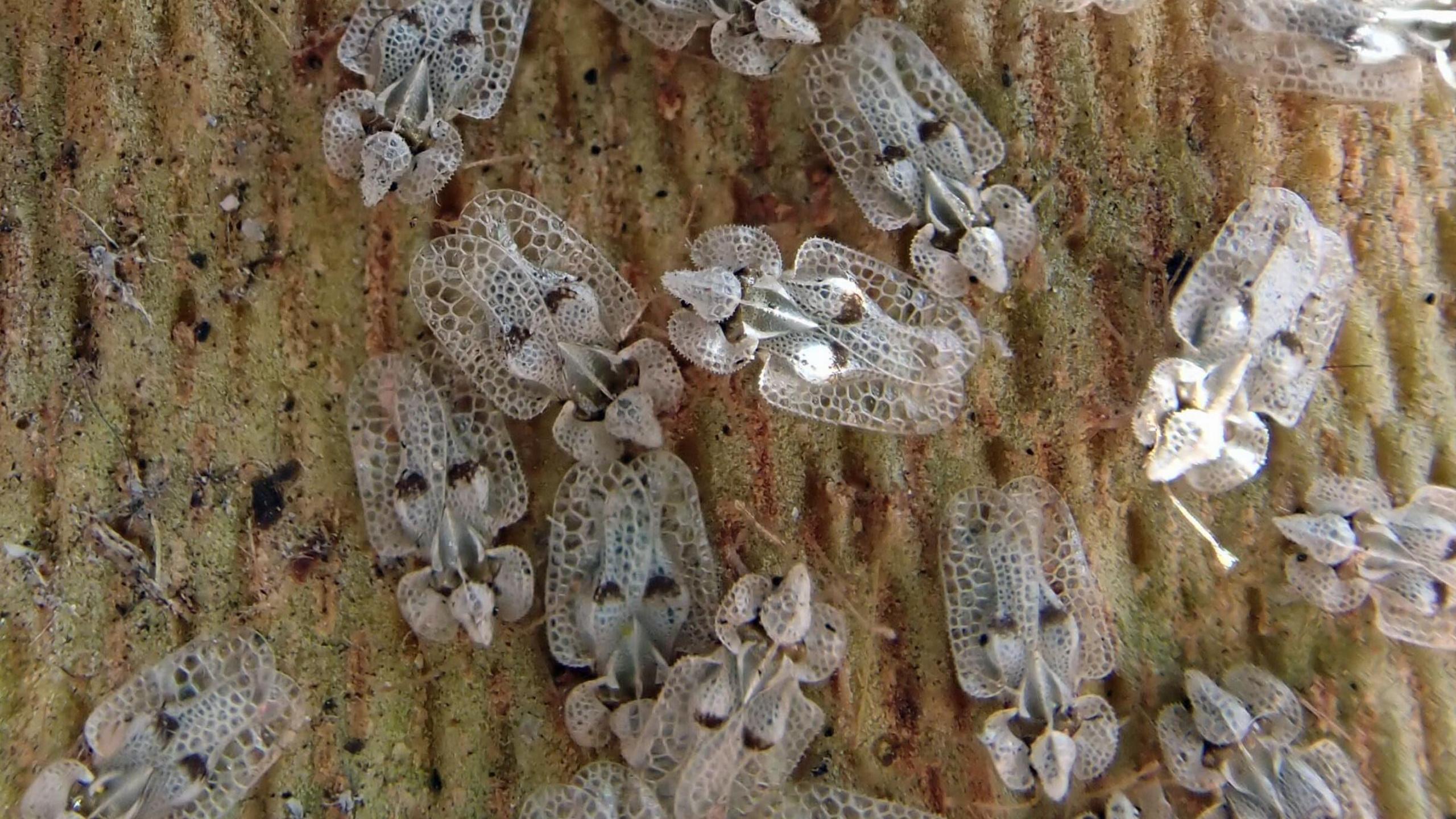
Plane lace bugs are around 4mm in size and damage plane trees by sucking their sap
The London plane tree is a hybrid of American sycamore and Oriental plane and was first discovered in the 17th Century. It was widely planted as a street tree in the 18th Century.
The tree, which is also found in Kent, is valued for its ability to adapt to urban conditions and resistance to pollution.
Follow BBC Kent on Facebook, external, on X, external, and on Instagram, external. Send your story ideas to southeasttoday@bbc.co.uk, external or WhatsApp us on 08081 002250.
Related topics
- Published4 October 2024
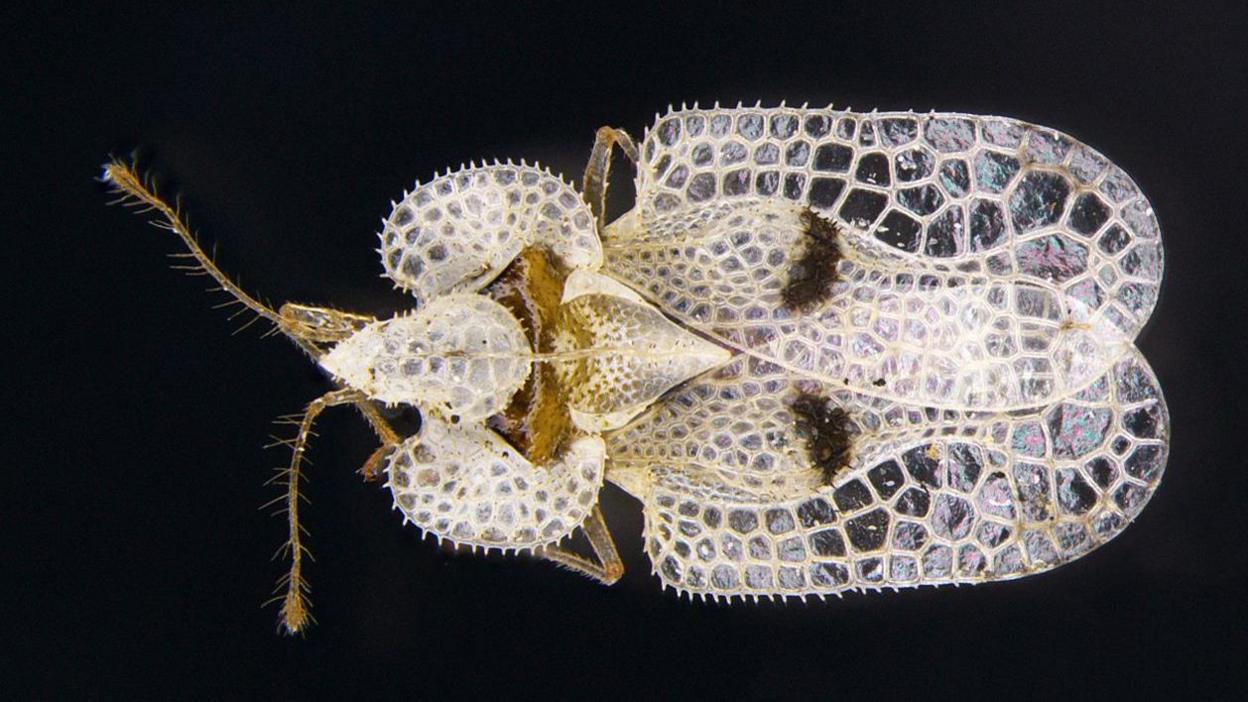
- Published4 October 2024
